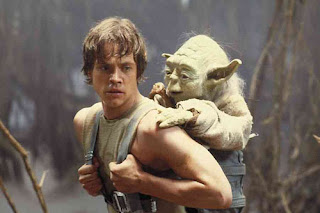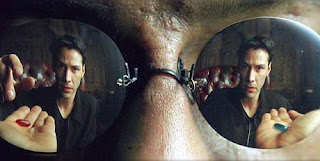A thumbnail of the structure goes like this:
We first see the hero in their ordinary world, but something's not right. Either the hero needs growth in some aspect of their life, or something from the outside forces them to change, thereby sending them into the new world of Act 2...
In this new world, the hero faces challenges, meets new friends (and enemies), and strives towards getting back to the old world with the treasure and themselves intact. But things rarely go that easily, and when the hero is farthest away from their goal, a new tactic is needed. Which sends them into Act 3...
Act 3 is all or nothing, do or die. The hero needs everything they've learned from their Act 2 turmoils to succeed and walk away with the illusive prize. Sometimes they don't do it. Sometimes it means death—if not a physical death, then a death of some part of them, which leaves them better than when they began the journey. In the last step in the sequence, the hero returns to the world and brings their new knowledge to the rest of us.
In the series, Campbell talks about the myths we all live with, how these myths help us at different stages of our lives, and how these myths are pretty much the same in every culture around the world.

Star Wars and The Matrix are classic examples of the hero's journey at work - all films (and stories) have at least some mythic elements embedded in them, which is why they strike us so deeply. The best filmmakers have tapped into this mythic structure and create new worlds that ring with authenticity.

In his seminal book "The Hero with a Thousand Faces," Campbell talks about stories from around the world and how they all stick to certain story principles. As a professor, he loved the details of each culture's myths; by comparing them, he shows how they address the emotional and spiritual needs of the communities they are from. That said, the book is not an easy read, but very worthwhile.
Another great book on the subject is "The Writer's Journey" by Christopher Vogler. This book breaks down Campbell's ideas into easy, understandable language and gives a blueprint of "The Wizard of Oz" and how it works within this structure.
Both these books are well worth the price. I've done a brief Flash overview on the high points of these books that can be found here.
Nothing happening? You may need a Flash Player...
You can get one here.

























